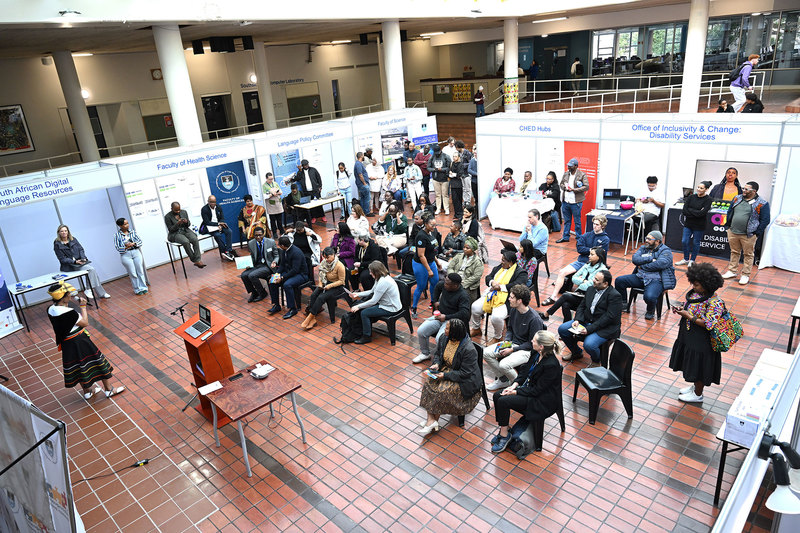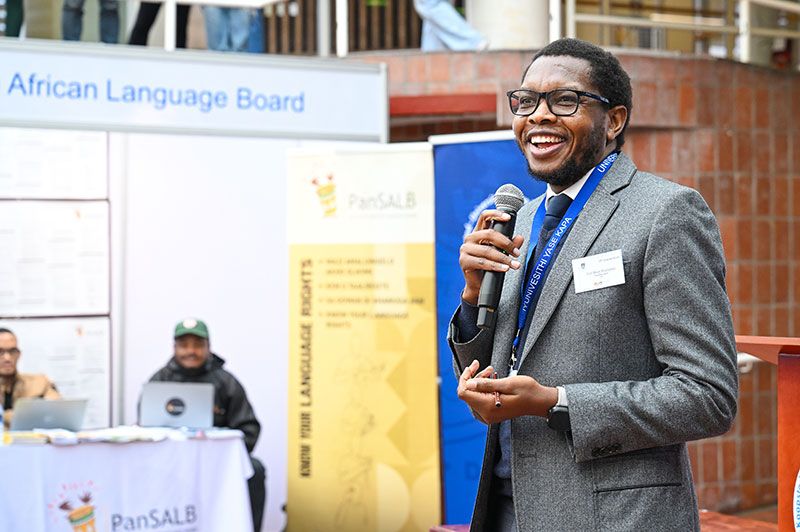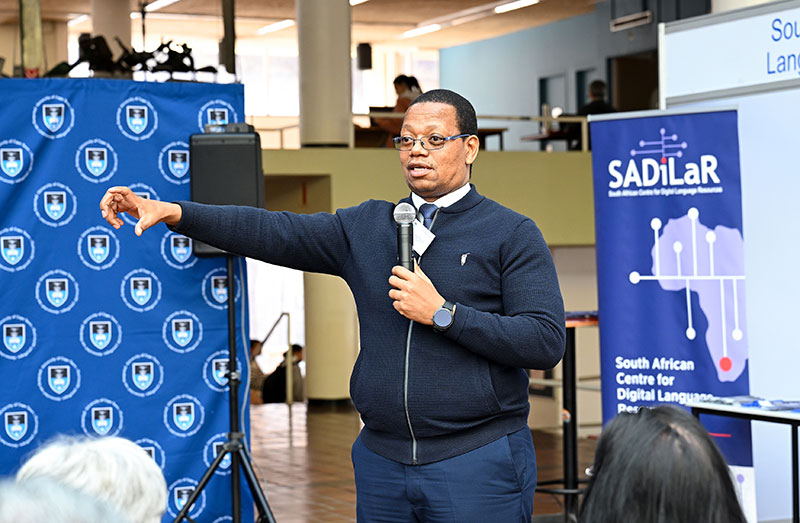UCT hosts maiden Language Indaba
16 September 2024 | Story Niémah Davids. Photos Lerato Maduna. Read time 4 min.
The University of Cape Town’s (UCT) maiden Language Indaba has reinforced the university’s commitment to multilingualism, said Professor Lolie Makhubu-Badenhorst, the director of UCT’s Multilingualism Education Project.
Speaking at the indaba on Thursday, 12 September, under the theme “Promoting understanding on the proposed UCT language policy”, Professor Makhubu-Badenhorst said UCT’s proposed language-use policy names English, Afrikaans and isiXhosa as its official languages. Other languages prioritised for development include South African Sign Language, Kaaps and Khoekhoegowab.
The event was held in the Leslie Social building on upper campus, and gave members of the campus community an opportunity to interact and engage with both internal and external departments and organisations playing a leading role in the policy’s implementation process. UCT is in the process of aligning its policy with the New Language Policy Framework for Public Higher Education institutions in South Africa.

“We recognise other languages and offer them here at the university. However, because we are [located] in the Western Cape, we are prioritising English, Afrikaans and isiXhosa,” she said. “If your language is not prioritised by the university, it does not mean that it is not important. All languages are equal and are important.”
Multilingualism begets diversity
While delivering his welcome remarks, UCT Vice-Chancellor (VC) Professor Mosa Moshabela referenced a recent and fitting inaugural lecture delivered by Professor Carolyn McKinney in the School of Education. During her lecture, Professor McKinney asked the question: why does exclusion based on language still exist in the classroom?
“It should be okay to train and teach in different languages and communicate in different languages in the classroom.”
And Professor Moshabela agreed. With multilingualism comes diversity, he said, which he described as affirming for different identities.
“It should be okay to train and teach in different languages and communicate in different languages in the classroom. And when you add [the] artificial intelligence [element] and [allow] translations [to] happen in real time in the classroom where you are using different languages ... it’s just incredible,” he said.
“The future is exciting; and more than anything, part of the conversation we had was how affirming it is for diversity in the classroom, for different identities that are coming together. People can express themselves in the way that they feel most comfortable.”
Language is vital
Professor Langa Khumalo, one of the event’s guest speakers and the executive director of the South African Centre for Digital Language Resources (SADiLAR) – a national centre that supports research and development in the domains of language technologies and language-related studies in the humanities and social sciences – said that language is more than just a tool.
Part of a language’s importance, Professor Khumalo said, is its unique ability to humanise the speaker of that language.
“When you speak a language, you project a humanity. So, you can imagine: if your language is suspended from a particular training space, that means part of your humanity is absent from that training space. That’s how deep I think language is,” he said.
An advocate for multilingualism in the classroom, Langa told the audience that the proscription of African languages in the national schooling system has meant a “denial of that aspect of humanity” to African language-speakers.

When individuals are given free rein to express themselves in their mother tongue, he said, it allows them to innovate, to think out of the box and to come up with solutions to some of the country’s, the continent’s and the world’s most complex problems.
“Language does more than just humanise us. It organises and expresses our thinking processes.”
“Language does more than just humanise us. It organises and expresses our thinking processes. I like to think of language as that important; which means, there is something that the South African government saw in acknowledging and affirming 12 official languages, because we are accentuating their humanity. We are recognising that they exist,” said Khumalo.
 This work is licensed under a Creative Commons Attribution-NoDerivatives 4.0 International License.
This work is licensed under a Creative Commons Attribution-NoDerivatives 4.0 International License.
Please view the republishing articles page for more information.










